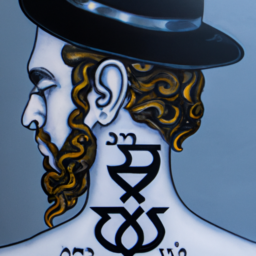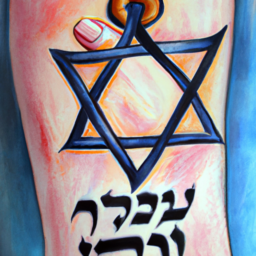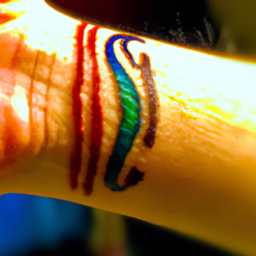“Hebrew Calligraphy Tattoos: Merging Tradition with Personal Expression”
Hebrew calligraphy, revered as an art, has transcended time and continues to thrive in today’s contemporary world. This ancient art form allows people to express themselves, especially important in our modern society, which values individuality and personal identity.
A Journey Back in Time: The History and Tradition of Hebrew Calligraphy
Unfolding the pages of history brings us to the monumental origins of Hebrew calligraphy. Intricately linked with the rich tapestry of Jewish traditions, the art form of Hebrew calligraphy bloomed from ancient times and successfully etched its impact on our present day. Hebrew calligraphy has been meticulously developed over the centuries and is deeply intertwined with major Jewish ceremonies, lending them a distinct aura of sanctity and respect.
Its significance goes beyond being a mere visual delight. It is an essential cultural emblem that shapes Jewish social life and spiritual customs. Immortalizing sacred words, prayers, and timeless wisdom, Hebrew calligraphy takes center stage in religious texts such as the Torah, offering a visual rhythm to the religious discourse within. Each calligraphic piece resonates with a profound sense of reverence and holds within it, the weight of historical legacy, deep cultural associations, and an inextricable bond with spirituality.
As we journey through the chronicles of Hebrew calligraphy, we can’t ignore its far-reaching impact, from humble beginnings, stimulating the Jewish consciousness to morphing into a beacon of self-expression and personal identity in today’s world. It has grown into a vibrant art form that bridges the realms of tradition and contemporary culture.
The Deep-Rooted Spiritual Culture of Hebrew Calligraphy
Hebrew calligraphy, with its elegance and sophistication, has traditionally been a significant aspect of Jewish culture. The deep-rooted spiritual and cultural significance of Hebrew words and letters is respected and adored worldwide. Every letter, in its intricate form, conveys profound spiritual meanings, symbolizing divine truths.
This attribute is notably evident in religious texts of Judaism, such as the Torah. Hebrew calligraphy stands as the soul of these sacred texts, creating a divine connection to the Almighty. Additionally, it also plays an integral part in various Jewish rituals and traditions.
For instance, scribes, or Soferim, use this ancient art form in creating mezuzahs and prayer shawls, imbuing them with sacredness. The symbolic power of Hebrew calligraphy in these elements brings a unique spiritual resonance in Jewish life, providing a divine connection between human and God.
Hebrew Calligraphy Transcending Boundaries
From Art to Popular Culture
Over time, Hebrew calligraphy has evolved, transitioning from a traditional backdrop to contemporary art forms, influencing cultural trends in tremendous ways. It has stepped outside religious and cultural boundaries and made a significant impact in areas like fashion, home decor, and even body art, reflecting the dynamic nature of this timeless art form.
Hebrew calligraphy, with its fundamental spiritual and aesthetic appeal, has made a great stride in popular culture. The divine allure of the Hebrew script has inspired several fashion and interior designers, integrating Hebrew calligraphy into their designs that cater to customers worldwide.
Such is the magnetism of this art form, that it has also found its place in body art, particularly in tattoo designs. It’s not unusual today to find individuals sporting a piece of Hebrew calligraphy, intricately inked on their bodies, regardless of their religious or cultural affiliations. This appealing crossover of Hebrew calligraphy onto other potential areas demonstrates the growing acceptance and even allure of this ancient script in the contemporary world, bridging gaps between various communities and celebrating the diversity of human self-expression.
In conclusion, Hebrew calligraphy has beautifully evolved into a medium of cultural translation, transcending beyond religion and tradition into modern aesthetics. At the same time, its deep-seated significance remains rooted in Jewish culture, preserving its spiritual resonance for centuries to come.
With its growing influence in popular culture, one can only expect the art of Hebrew calligraphy to continue its journey of evolution, maintaining a balance between the traditional spiritual connections and contemporary artistic expressions.
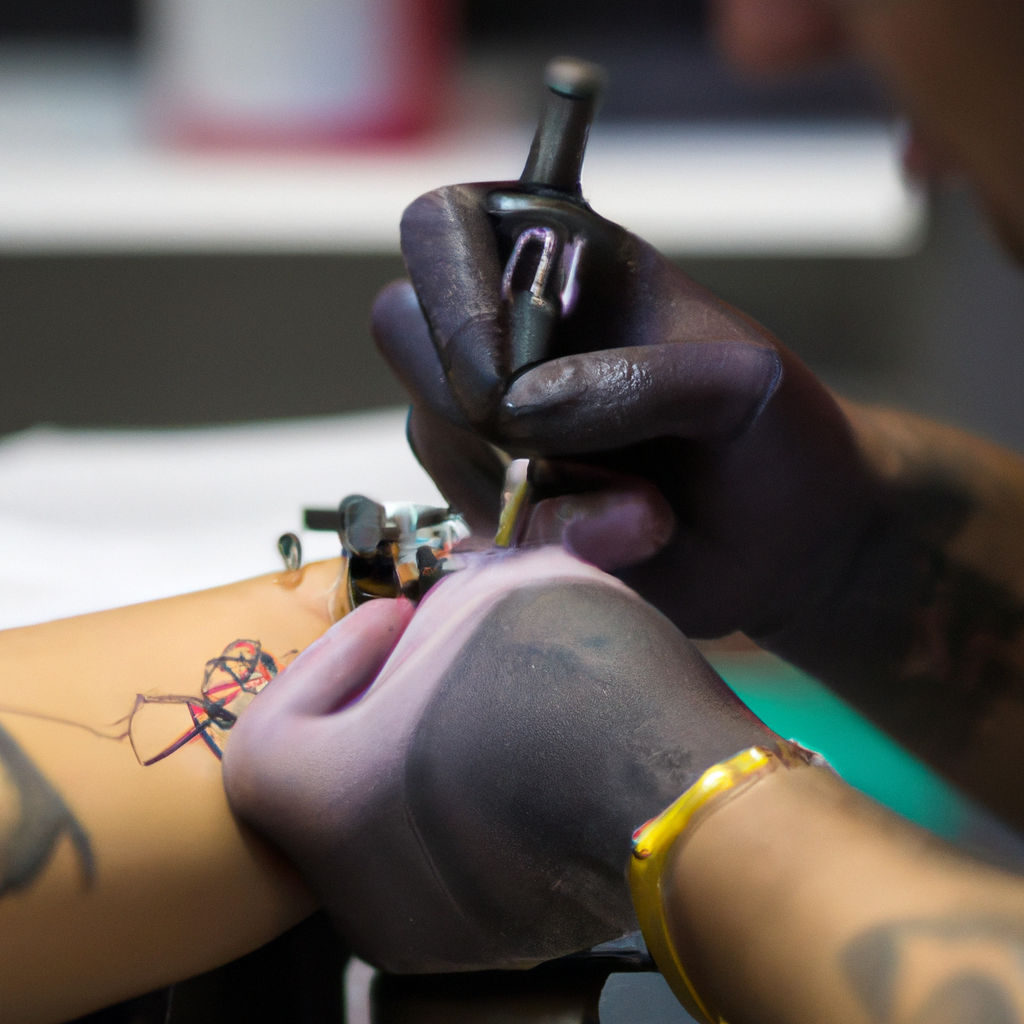
Growing Popularity of Hebrew Calligraphy Tattoos
With the rise in the global fascination for tattoos, the ancient tradition of Hebrew calligraphy hasn’t been left behind. Today, we can witness a growing trend of Hebrew calligraphy tattoos among individuals of various walks of life, Jews and non-Jews alike. These tattoos, etched in evocative strokes and curves of age-old Hebrew letters, serve as statements of faith, expressions of personal philosophy, or simple appreciation for the aesthetics of the language.
Notably, many famous personalities, including celebrities and athletes, have fallen for the mystical allure of Hebrew script, choosing to bear it on their skin. These tattoos often attract public interest and curiosity, leading to an amplified popularity and fascination for Hebrew calligraphy tattoos.
Personal Expression through Hebrew Calligraphy Tattoos
Hebrew calligraphy tattoos are known to go beyond the superficial appeal of intriguing art. For many, these tattoos bear a deep personal significance, revealing their identity, core beliefs or individual experiences.
Symbol of Personal Beliefs, Values or Memories
Each Hebrew script tattoo is a rerum of personal narrative, an emblem of the wearer’s ethos. They represent convictions, values, or recollections that have made an indelible mark on their life. For someone, it could be a verse from the Torah that resonates with their life philosophy. For another, it could be a Hebrew word that symbolizes an important milestone or memory. Thanks to the diversity of the Hebrew alphabet and language, each tattoo is as unique as the person who bears it.
In a world that frequently emphasizes the importance of self-expression and personal identity, Hebrew calligraphy tattoos have carved a niche for themselves. They serve as a unique medium for individuals to communicate their personal ideologies or stories, framed in the rich cultural tradition of Hebrew calligraphy. Consequently, Hebrew calligraphy tattoos help bridge the gap between ancient traditions and modern forms of self-expression.
Remember to include relevant keywords to boost your SEO rating such as ‘Hebrew calligraphy tattoos’, ‘personal expression’, ‘cultural tradition’, and ‘Hebrew script tattoos’. This will enhance your search engine visibility and reach a wider audience.
The Controversy of Hebrew Calligraphy Tattoos
Despite the ever-increasing popularity of Hebrew calligraphy tattoos, it hasn’t been received entirely without a backlash. From conservative Jewish quarters to discerning cultural enthusiasts, many critics have questioned the ethical soundness of inscribing sacred religious symbols and letters, especially on non-Jewish bodies.
The tattooing practice, especially with religious and spiritual symbols, can often cross the fine line separating culture appreciation and culture appropriation. Some purists have strongly condemned Hebrew calligraphy tattoos sighting them as examples of cultural appropriation and an outright disregard of the Jewish law. In Jewish culture, marking the body with tattoos has traditionally been frowned upon due to specific religious commandments.
However, it is essential to remember that the interpretation of these laws varies amongst different Jewish communities. The debate isn’t merely limited to Jews; even non-Jews carrying these tattoos have faced criticism, often being accused of blatantly commodifying Jewish textual heritage for stylistic reasons without any understanding or respect for its cultural connotations.
The Response from Tattoo Lovers and Artists
On the other side of the debate, tattoo enthusiasts and artists defend the practice. They see tattoos as a form of individual expression that transcends boundaries of religion and culture. By adopting Hebrew calligraphy tattoos, people are expressing appreciation for Jewish textual art and sensitively connecting with its spiritual aspect rather than exploiting it.
Responding to the religious critique about defiling the body with tattoos, artists and supporters argue that the body itself is a canvas and altering it with tattoos symbolizes personal growth, transformation, and an exhibition of personal experiences or beliefs. Also, the genuine respect and intrigue for the mystique of Hebrew scripts inspire many non-Jews to get Hebrew tattoos.
The thriving business of tattoo artists specializing in Hebrew calligraphy lends credence to this perspective. The tattoos’ beauty and the rich history behind each Hebrew letter and word have a universal appeal that attracts people from all walks of life, irrespective of their religious affiliations.
As we delve into this debate, it becomes clear that although tattoos can be a sensitive topic due to religious and traditional reasons, they also provoke conversations about personal freedom, aesthetic appreciation, and cultural exchange in our increasingly interconnected world. It is, however, critical to highlight the need for respect and understanding of the profound significance behind these ancient scripts before choosing to bear them as art on bodies.
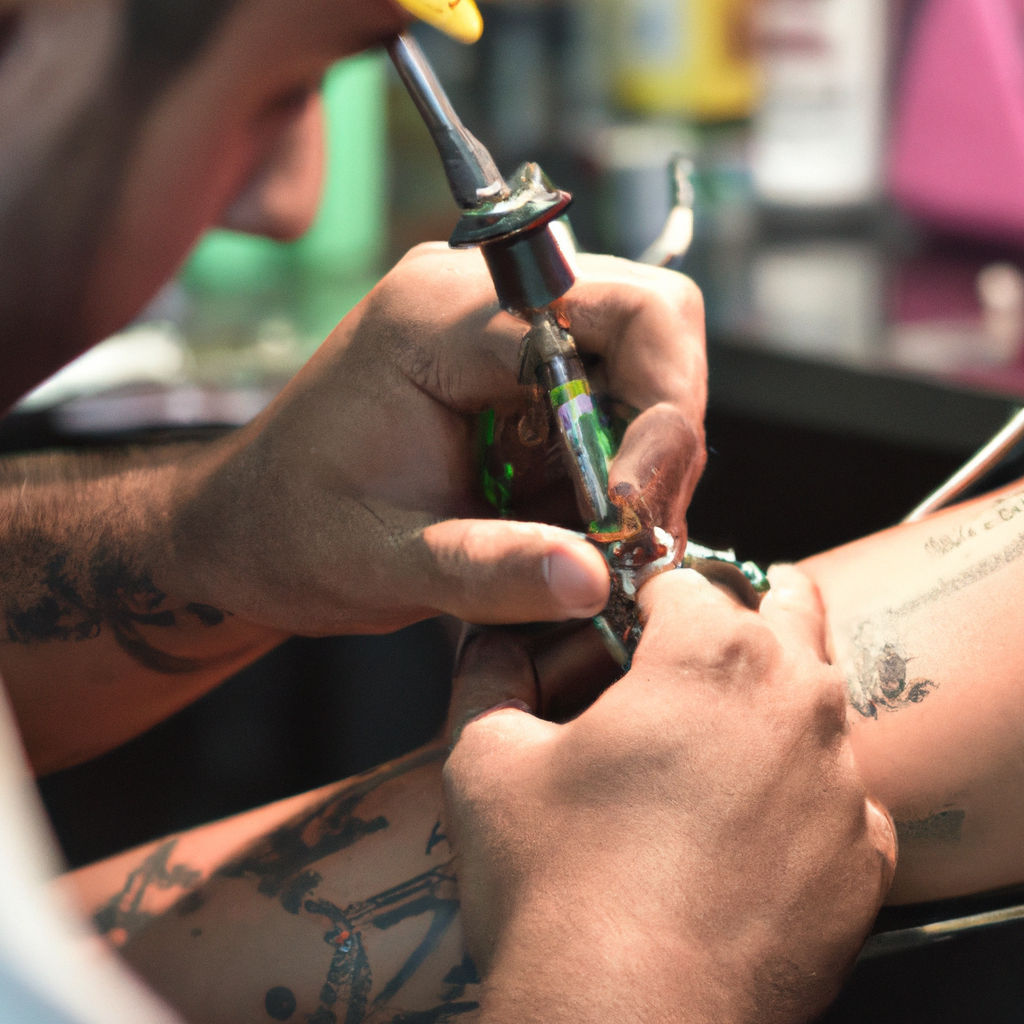
Forecasting the Future of Hebrew Calligraphy Tattoos
As tattoos continue to grow in popularity and acceptance, so does the fascination with Hebrew calligraphy tattoos. Predicting the future of Hebrew calligraphy tattoos involves gauging the evolving tastes for personal expression, the increasing respect for cultural diversity, and the growing appreciation for the beautiful artistry of Hebrew lettering.
Modern tattoo enthusiasts are always on the lookout for unique and meaningful tattoo designs, and Hebrew calligraphy offers both. These tattoos are not only visually appealing but also carry great depth of meaning, making them a compelling option for individuals seeking tattoos that resonate with their personal beliefs, values, or memories. Hence, it is expected that the popularity of Hebrew calligraphy tattoos will continue to rise in the future.
There’s also an expectations that the advancements in technology will further fuel the evolution of Hebrew calligraphy tattoos. With digital imaging and 3D tattoo techniques, artists can now create more intricate and realistic Hebrew calligraphy tattoos than ever before.
Growth Opportunities in the Market
Where there is demand, there will also be growth opportunities. As interest in Hebrew calligraphy tattoos surges, one can anticipate that more tattoo artists will specialize in this style, thereby expanding the market. In addition, with an increase in diversity and globalization, there may be a flourishing demand for Hebrew calligraphy tattoos in countries and cultures far from its origins.
Moreover, keeping in mind the significance of Hebrew letters and symbols, there can be related market growth in areas of artistic expression such as body art, fashion, and home decor that incorporate Hebrew calligraphy.
In conclusion, the future looks bright for Hebrew calligraphy tattoos. They represent an appealing blend of ancient artistry with modern expression and serve as living testaments to one’s individuality, beliefs, and personal journey. As cultural appreciation continues to grow, so too will the popularity of Hebrew calligraphy tattoos.
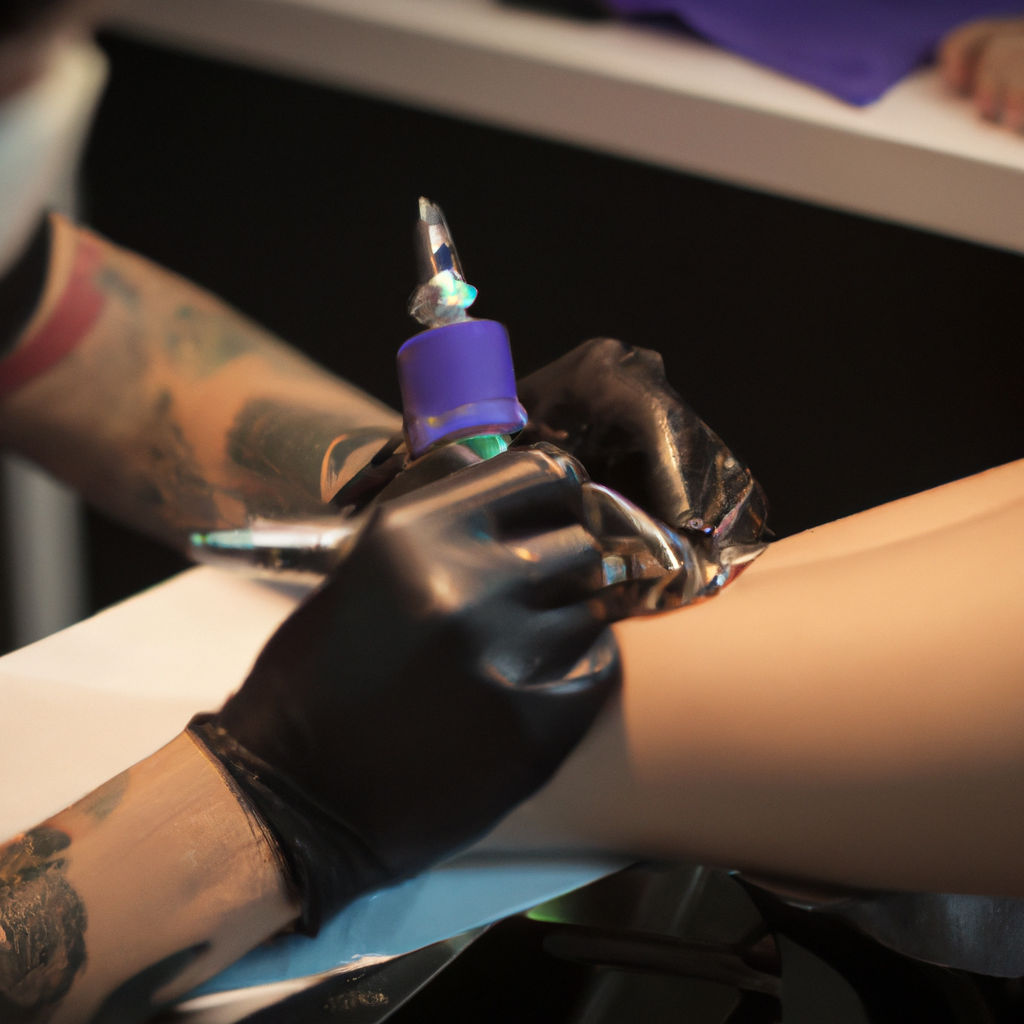
In conclusion, Hebrew calligraphy tattoos offer an intriguing blend of long-standing cultural tradition and unique personal expression. This form of body art allows the bearer to establish a connection with the ancient Hebrew language and culture. Still, its meaning transcends referring simply to Jewish heritage, extending to embrace universal themes of faith, love, strength, and spirituality that resonate with individuals across diverse backgrounds.
Moreover, these tattoos aren’t merely visual masterpieces. They carry profound symbolic value, often representing the bearer’s deeply-held beliefs, personal values, cherished memories, or significant life events. Each Hebrew letter and word chosen for the tattoo reveals a narrative – a piece of the wearer’s identity – rendered in the elegant strokes of calligraphy.
However, the growing popularity of Hebrew calligraphy tattoos underscores the importance of understanding their cultural and religious significance. It’s essential to respect the heritage these symbols carry, acknowledging that they are more than aesthetic choices. In essence, they’re a living testament to a rich tradition shaped by millennia.
The sensitive task of inscribing these tattoos, then, should be trusted with professional artists who appreciate their cultural relevance and can script them with appropriate care. Those considering getting Hebrew calligraphy tattoos should also strive to comprehend the depth of meaning behind the words they opt to permanently etch on their bodies. This ensures that the cultural essence of these tattoos is honored, and their inherent beauty and significance fully celebrated.
In the rising tide of personal expression through body art, it’s heartening to see age-old Hebrew calligraphy being reinterpreted into contemporary tattoos. As the lines of tradition and self-expression converge in these unique tattoos, they bring to life the enduring allure of Hebrew calligraphy, its cultural importance and the pivotal role they play in the art of storytelling through body art.
